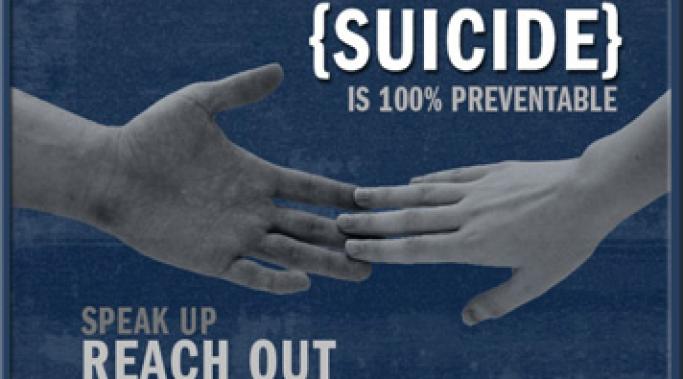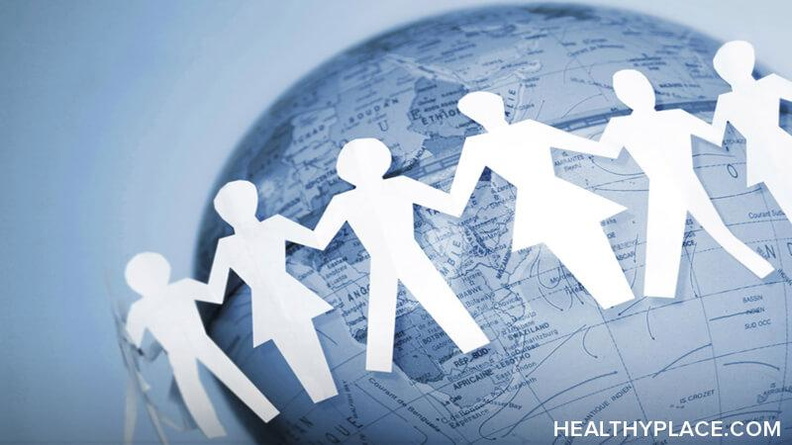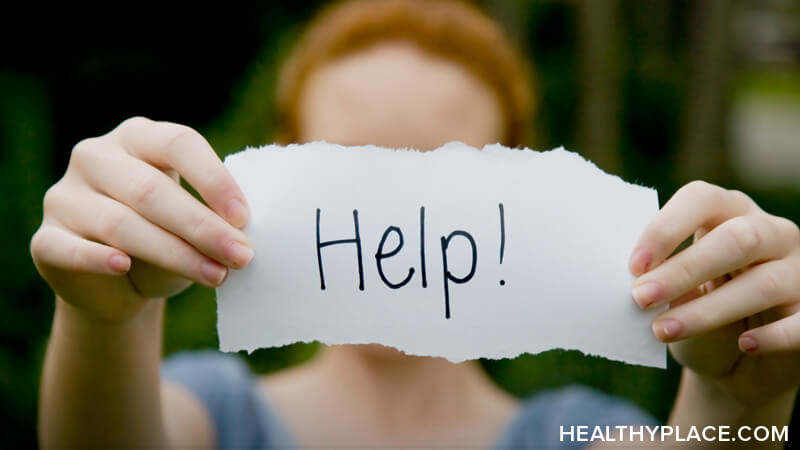
Suicide IS PERMANENT!
IF YOU NEED IMMEDIATE HELP...
The internet is not a great place for immediate one-on-one communication. If you're feeling suicidal or overwhelmed by anxiety, internet help is available, but should be tried only after you have called a friend, loved one, clergy, doctor, a local hotline, or 911.
To access slower internet help, contact Samaritans. Samaritans is a British institution providing free and confidential suicide intervention. To talk to a Samaritan by phone, get the number at their web site: for the Welsh Language, rest of world.
If you have a friend or a loved one who is suicidal:
Understanding and Helping a Suicidal Person
What Can I Do To Help Someone Who May Be Suicidal?
1. TAKE IT SERIOUSLY
a. Myth: "The people who talk about it don't do it." Studies have found that more than 75% of all completed suicides did things in the few weeks or months prior to their deaths to indicate to others that they were in deep despair. Anyone expressing suicidal feelings needs immediate attention.
b. Myth: "Anyone who tries to kill himself has got to be crazy." Perhaps 10% of all suicidal people are psychotic or have delusional beliefs about reality. Most suicidal people suffer from the recognized mental illness of depression, but many depressed people adequately manage their daily affairs. The absence of "craziness" does not mean the absence of suicide risk.
c. "Those problems weren't enough to die by suicide over," is often said by people who knew a person who completed suicide. You cannot assume that because you feel something is not worth being suicidal about, that the person you are with feels the same way. It is not how bad the problem is, but how badly it's hurting the person who has it.
2. REMEMBER: SUICIDAL BEHAVIOR IS A CRY FOR HELP
Myth: "If someone is going to kill himself, nothing can stop him." The fact that a person is still alive is sufficient proof that part of him wants to remain alive. The suicidal person is ambivalent - part of him wants to live and part of him wants not so much death as he wants the pain to end. It is the part that wants to live that tells another "I feel suicidal." If a suicidal person turns to you it is likely that he believes that you are more caring, more informed about coping with misfortune, and more willing to protect his confidentiality. No matter how negative the manner and content of his talk, he is doing a positive thing and has a positive view of you.
3. BE WILLING TO GIVE AND GET HELP SOONER RATHER THAN LATER
Suicide prevention is not a last-minute activity. All textbooks on depression say it should be reached as soon as possible. Unfortunately, suicidal people are afraid that trying to get help may bring them more pain: being told they are stupid, foolish, sinful, or manipulative; rejection; punishment; suspension from school or job; written records of their condition; or involuntary commitment. You need to do everything you can to reduce pain, rather than increase or prolong it. Constructively involving yourself on the side of life as early as possible will reduce the risk of suicide.
4. LISTEN
Give the person every opportunity to unburden his troubles and vent his feelings. You don't need to say much and there are no magic words. If you are concerned, your voice and manner will show it. Give him relief from being alone with his pain; let him know you are glad he turned to you. Patience, sympathy, acceptance. Avoid arguments and advice giving.
5. ASK: "ARE YOU HAVING THOUGHTS OF SUICIDE?"
Myth: "Talking about it may give someone the idea." People already have the idea; suicide is constantly in the news media. If you ask a despairing person this question you are doing a good thing for them: you are showing him that you care about him, that you take him seriously, and that you are willing to let him share his pain with you. You are giving him further opportunity to discharge pent up and painful feelings. If the person is having thoughts of suicide, find out how far along his suicidal ideation has progressed.
6. IF THE PERSON IS ACUTELY SUICIDAL, DO NOT LEAVE HIM ALONE
If the means are present, try to get rid of them. Detoxify the home.
7. URGE PROFESSIONAL HELP
Persistence and patience may be needed to seek, engage and continue with as many options as possible. In any referral situation, let the person know you care and want to maintain contact.
8. NO SECRETS
It is the part of the person that is afraid of more pain that says "Don't tell anyone." It is the part that wants to stay alive that tells you about it. Respond to that part of the person and persistently seek out a mature and compassionate person with whom you can review the situation. (You can get outside help and still protect the person from pain causing breaches of privacy.) Do not try to go it alone. Get help for the person and for yourself. Distributing the anxieties and responsibilities of suicide prevention makes it easier and much more effective.
9. FROM CRISIS TO RECOVERY
Most people have suicidal thoughts or feelings at some point in their lives; yet less than 2% of all deaths are suicides. Nearly all suicidal people suffer from conditions that will pass with time or with the assistance of a recovery program. There are hundreds of modest steps we can take to improve our response to the suicidal and to make it easier for them to seek help. Taking these modest steps can save many lives and reduce a great deal of human suffering.
How You Can Help
Most suicides can be prevented by sensitive responses to the person in crisis. If you think someone you know may be suicidal, you should:
- Remain calm. In most instances, there is no rush. Sit and listen - really listen to what the person is saying. Give understanding and active emotional support for his or her feelings.
- Deal directly with the topic of suicide. Most individuals have mixed feelings about death and dying and are open to help. Don't be afraid to ask or talk directly about suicide.
- Encourage problem-solving and positive actions. Remember that the person involved in emotional crisis is not thinking clearly; encourage him or her to refrain from making any serious, irreversible decisions while in a crisis. Talk about the positive alternatives which may establish hope for the future.
- Get assistance. Although you want to help, do not take full responsibility by trying to be the sole counsel. Seek out resources which can lend qualified help, even if it means breaking a confidence. Let the troubled person know you are concerned - so concerned that you are willing to arrange help beyond that which you can offer.
UCLA suicide prevention experts have summarized the information to be conveyed to a person in crisis as follows:
- The suicidal crisis is temporary.
- Unbearable pain can be survived.
- Help is available.
- You are not alone.
WARNING SIGNS POSSIBLY LEADING TO SUICIDE
A. Conditions associated with increased risk of suicide
- Death or terminal illness of relative or friend.
- Divorce, separation, broken relationship, stress on family.
- Loss of health (real or imaginary).
- Loss of job, home, money, status, self-esteem, personal security.
- Alcohol or drug abuse.
- Depression. In younger individuals, depression may be masked by hyperactivity or acting out behavior. In the elderly, it may be incorrectly attributed to the natural effects of aging. Depression that seems to quickly disappear for no apparent reason is cause for concern. The early stages of recovery from depression can be a high-risk period. Recent studies have associated anxiety disorders with increased risk for attempted suicide
B. Emotional and behavioral changes associated with suicide
- Overwhelming Pain: pain that threatens to exceed the person's pain coping capacities. Suicidal feelings are often the result of longstanding problems that have been exacerbated by recent precipitating events. The precipitating factors may be new pain or the loss of pain coping resources.
- Personality changes: becomes sad, withdrawn, tired, apathetic, anxious, irritable, or prone to angry outbursts.
- Feelings of worthlessness, shame, guilt, self-hatred, "no one cares". Fears of losing control, harming self or others.
- Powerlessness: the feeling that one's resources for reducing pain are exhausted.
- Hopelessness: the feeling that the pain will continue or get worse; things will never get better.
- Declining performance in school, work, or other activities. (Occasionally the reverse: someone who volunteers for extra duties because they need to fill up their time.)
- Social isolation or association with a group that has different moral standards than those of the family.
- Declining interest in sex, friends, or activities previously enjoyed.
- Neglect of personal welfare, deteriorating physical appearance.
- Alterations in either direction in sleeping or eating habits.
- (Particularly in the elderly) Self-starvation, dietary mismanagement, disobeying medical instructions.
- Difficult times: holidays, anniversaries, and the first week after discharge from a hospital; just before and after diagnosis of a major illness; just before and during disciplinary proceedings. Undocumented status adds to the stress of a crisis.
C. Suicidal Behavior
- Previous suicide attempts, "mini-attempts".
- Explicit statements of suicidal ideation or feelings.
- Development of suicidal plan, acquiring the means, "rehearsal" behavior, setting a time for the attempt.
- Self-inflicted injuries, such as cuts, burns, or head banging.
- Reckless behavior. (Besides suicide, other leading causes of death among young people in New York City are homicide, accidents, drug overdose, and AIDS.) Unexplained accidents among children and the elderly.
- Making out a will or giving away favorite possessions.
- Inappropriately saying goodbye.
- Verbal behavior that is ambiguous or indirect: "I'm going away on a real long trip.", "You won't have to worry about me anymore.", "I want to go to sleep and never wake up.", "I'm so depressed, I just can't go on.", "Does God punish suicides?", "Voices are telling me to do bad things.", requests for euthanasia information, inappropriate joking, stories or essays on morbid themes.
A WARNING ABOUT WARNING SIGNS
The majority of the population, at any one time, does not have many of the warning signs and has a lower suicide risk rate. But a lower rate, in a larger population, is still a lot of people - and many completed suicides had only a few of the conditions listed above. In a one person to another person situation, all indications of suicidality need to be taken seriously.
Crisis Intervention Hotlines that accept calls from the suicidal, or anyone who wishes to discuss a problem, are (in New York City): The Samaritans at 212-673-3000 and Helpline at 212-532-2400.
SUICIDE PREVENTION
Why Do People Kill Themselves?
The common link among people who kill themselves is the belief that suicide is the only solution to a set of overwhelming feelings. The attraction of suicide is that it will finally end these unbearable feelings. The tragedy of suicide is that intense emotional distress often blinds people to alternative solutions... yet other solutions are almost always available.
We all experience feelings of loneliness, depression, helplessness, and hopelessness, from time to time. The death of a family member, the breakup of a relationship, blows to our self-esteem, feelings of worthlessness, and/or major financial setbacks are serious which all of us may have to face at some point in our lives. Because each person's emotional makeup is unique, each of us responds to situations differently.
In considering whether a person may be suicidal, it is imperative that the crisis be evaluated from that person's perspective. What may seem of minor importance to someone else - and an event that may be in-significant to you can be extremely distressful to another. Regardless of the nature of the crisis, if a person feels overwhelmed, there is danger that suicide may seem an attractive solution.
Danger Signals
At least 70 percent of all people committing suicide give some clue as to their intentions before they make an attempt. Becoming aware of these clues and the severity of the person's problems can help prevent such a tragedy. If a person you know is going through a particularly stressful situation - perhaps having difficulty maintaining a meaningful relationship, having consistent failure in meeting preset goals, or even experiencing stress at having failed an important test- watch for other signs of crisis.
Many persons convey their intentions directly with statements such as "I feel like killing myself," or "I don't know how much longer I can take this."
Others in crisis may hint at a detailed suicide plan with statements such as "I've been saving up my pills in case things get really bad," or "Lately I've been driving my car like I really don't care what happens." In general, statements describing feelings of depression, helplessness, extreme loneliness, and/or hopelessness may suggest suicidal thoughts. It is important to listen to these "cries for help" because they are usually desperate attempts to communicate to others the need to be understood and helped.
Often persons thinking about suicide show outward changes in their behavior. They may prepare for death by giving away prized possessions, making a will, or putting other affairs in order. They may withdraw from those around them, change eating or sleeping patterns, or lose interest in prior activities or relationships. A sudden, intense lift in spirits may also be a danger signal, as it may indicate the person already feels a sense of relief knowing the problems will "soon be ended."
Myths about Suicide
MYTH: "You have to be crazy even to think about suicide."
FACT: Most people have thought of suicide form time-to-time. Most suicides and suicide attempts are made by intelligent, temporarily confused individuals who are expecting too much of themselves, especially in the midst of a crisis.
MYTH: "Once a person has made a serious suicide attempt, that person is unlikely to make another."
FACT: The opposite is often true. Persons who have made prior suicide attempts may be at greater risk of actually committing suicide; for some, suicide attempts may seem easier a second or third time.
MYTH: "If a person is seriously considering suicide, there is nothing you can do."
FACT: Most suicide crises are time-limited and based on unclear thinking. Persons attempting suicide want to escape from their problems. Instead, they need to confront their problems directly in order to find other solutions - solutions which can be found with the help of concerned individuals who support them through the crisis period, until they are able to think more clearly.
MYTH: "Talking about suicide may give a person the idea."
FACT: The crisis and resulting emotional distress will already have triggered the thought in a vulnerable person. Your openness and concern in asking about suicide will allow the person experiencing pain to talk about the problem which may help reduce his or her anxiety. This may also allow the person with suicidal thoughts to feel less lonely or isolated, and perhaps a bit relieved.
Comprehensive Information on Suicide









